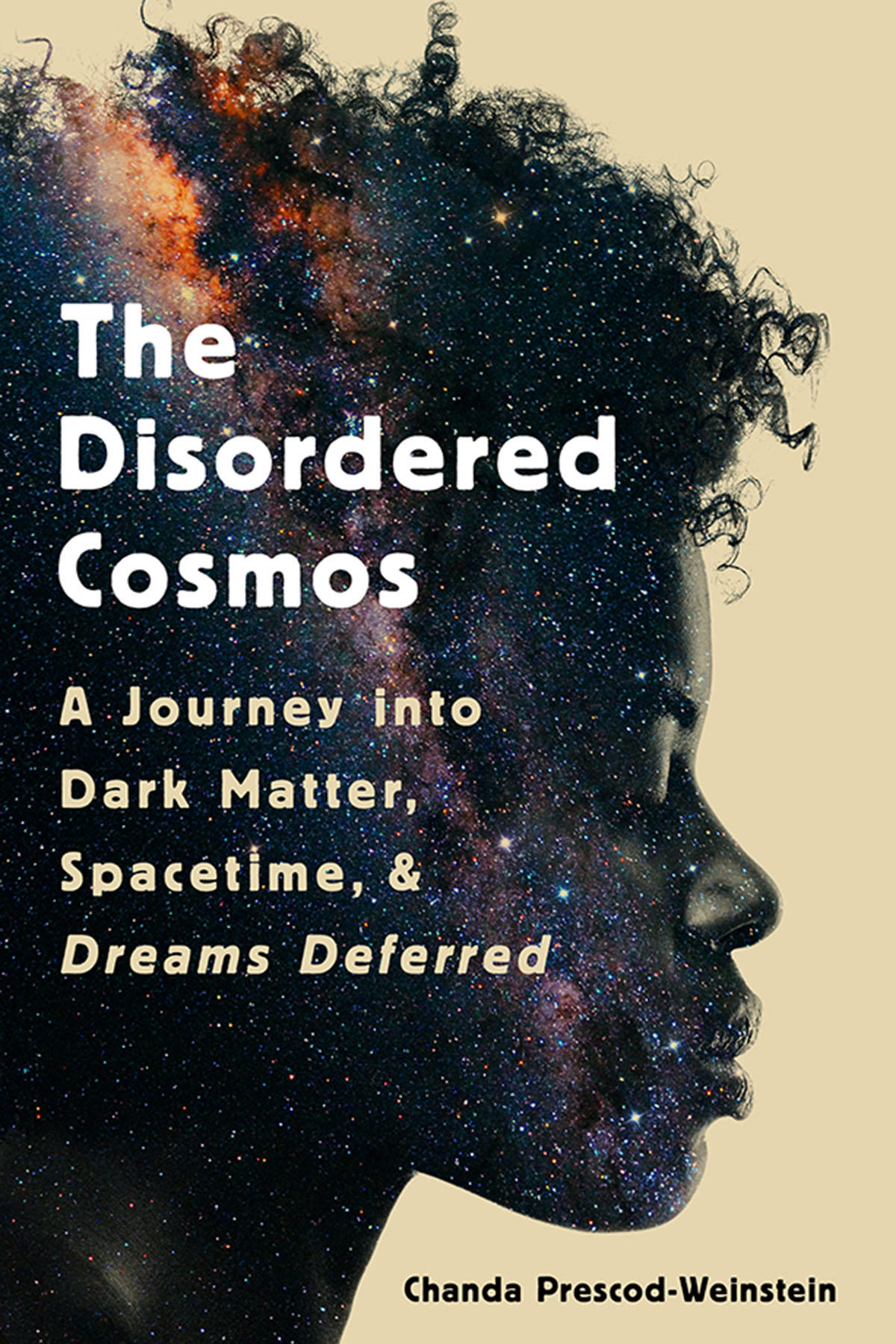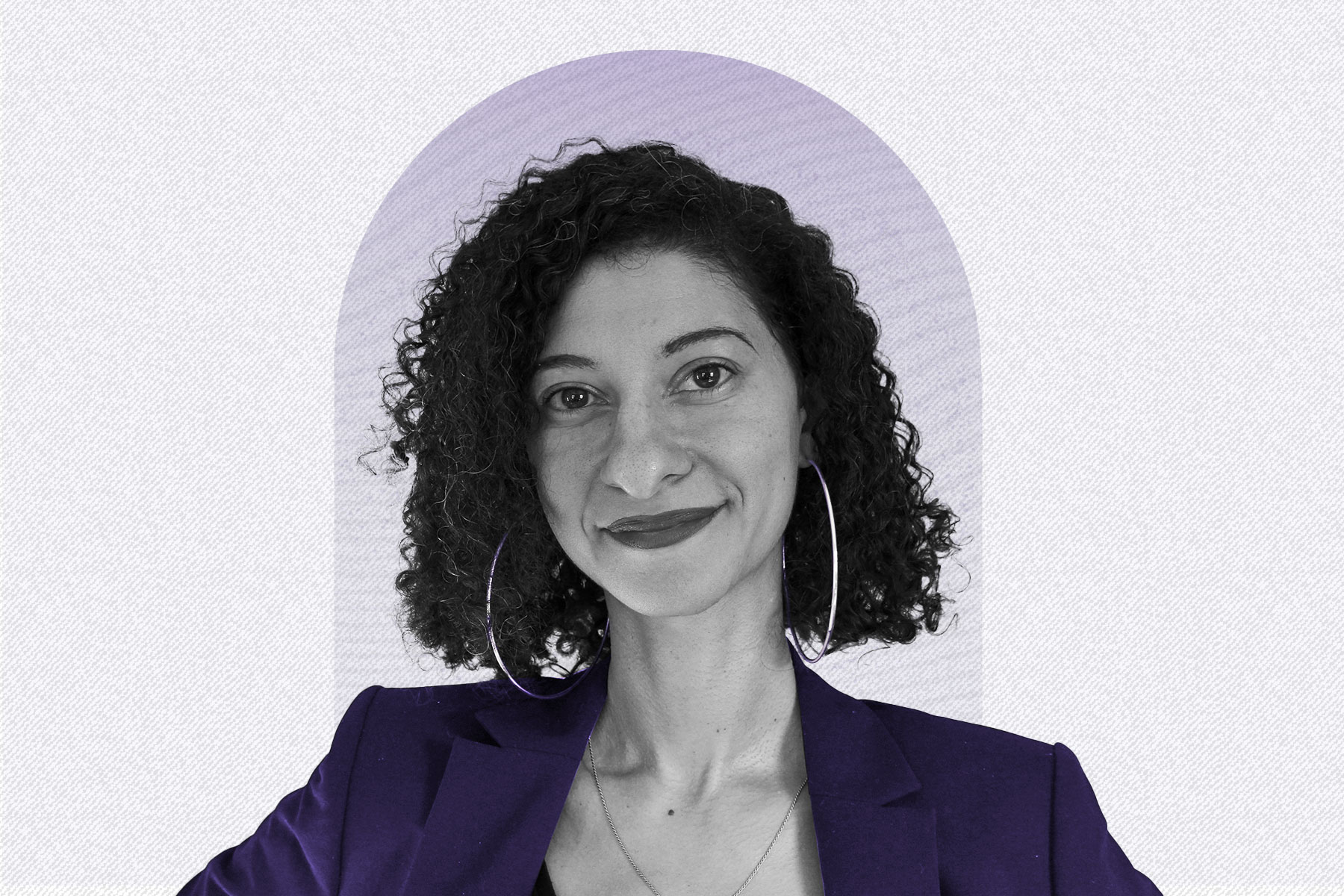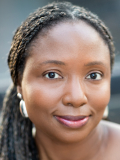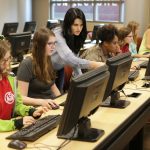We’re telling the untold stories of women, women of color and LGBTQ+ people. Sign up for our daily newsletter.
Chanda Prescod-Weinstein still remembers how appalled her father was when she pointed to a stream of light spanning the sky and inquired, “What is that?”
“My dad just looked at me like, ‘What. . . is wrong with you?’” Prescod-Weinstein recalled with a laugh. “That’s the Milky Way,” he told her.
Neither one of them knew for sure during their camping trip among the giant sequoias nearly three decades ago that Prescod-Weinstein, then 14, would grow up to be a theoretical physicist specializing in early universe cosmology, though the teenager had already expressed an interest in the field. Spending her youth in light-polluted Los Angeles, however, had robbed Prescod-Weinstein of the opportunity to study the night sky, so it took driving hours out of the city to finally see the Milky Way.
Today, the teen who didn’t recognize her own galaxy is not only an expert on the cosmos but also a trailblazing scholar. In June, she received tenure from the University of New Hampshire (UNH). That feat makes her the first Black woman in the nation to earn tenure in particle theory or cosmology theory, according to African American Women in Physics, Inc. (AAWIP), which celebrates the achievements of Black women in physics, including how many have doctorates or work in the discipline.
“The number of Black women who have ever earned tenure in physics departments in America is smaller than 20,” said Jami Valentine Miller, AAWIP’s founder and CEO in a statement to The 19th. “The impact of her receiving tenure is significant and worthy of note because it provides academic freedom and will enable her to continue research that changes our understanding of the universe. Her impact on physics cannot be overstated.”
Born to a mother of Black Barbadian heritage and a father of Eastern European Jewish heritage, Prescod-Weinstein’s journey to tenure was never assured. She grew up primarily with her mother in El Sereno, a mostly working-class and Latinx neighborhood on L.A.’s Eastside.
-
Read Next:
Caring middle and high school teachers nurtured her interest in science before she made her way into an altogether unfamiliar world, albeit right here on Earth: Harvard. She documents her life, work and physics in the 2021 book “The Disordered Cosmos: A Journey into Dark Matter, Spacetime, and Dreams Deferred,” winner of the Los Angeles Times Book Prize in science and technology. Prescod-Weinstein has received multiple other honors, including the 2023 Cottrell Scholar Award from the Research Corporation for Science Advancement and an Eric and Wendy Schmidt Award for Excellence in Science Communication for article writing that advances science for the public.
Prescod-Weinstein, also a core faculty member of UNH’s women’s and gender studies program, recently launched the Cite Black Women+ in Physics and Astronomy Bibliography, a database recognizing 50 years of published work by Black women and gender minorities with Ph.D.s in those fields in the United States.
The 19th spoke with her about her path to tenure, particularly how her childhood and education prepared her to make history, and the importance of giving young people the chance to spot the Milky Way in a dark sky.
This interview has been edited for length and clarity.
Nadra Nittle: What was your reaction to getting tenure?
Chanda Prescod-Weinstein: My very first reaction to knowing that the tenure was really going to happen was grief, because I was part of a cohort. I had a crew of other Black students in theoretical physics who were doing their Ph.D.s around the same time as me. And of that group of friends, I’m the only one who will probably get tenure in our lifetime. Honestly, it’s a hard thing for me to talk about without crying.
I also felt relief. I think that’s probably the No. 1 feeling. Also, I went through a lot to get here, and I shouldn’t have had to go through some of the things that I went through. It’s still too early for me to just let any feelings of pride be the paramount feelings that I’m having. I know that I should be proud of myself. It’s also a hard time to be celebrating because there are so many things in the world that are just rough right now. I don’t think the pandemic is over. We’re all living through this extraordinarily traumatizing collective experience.

You have a chapter in “The Disordered Cosmos” called the “Physics of Melanin,” in which you discuss colorism. Why was this topic important to discuss?
One of my big frustrations with the conversations that we have about race in the physics and astronomy community is that even to the extent that people are willing to talk about racism, people still have no fluency in talking about colorism or even raising colorism as an issue. So, my read of that situation is not that I didn’t experience racism, but I do think I experienced less racism than people who are darker skinned than me, and that could have been a factor that might have altered the path that I ended up taking.
Psychologically, it’s kind of an interesting moment because, on the one hand, I know how hard I’ve worked, and I know how many things I’ve been through to get to where I am, but what would it mean for someone who doesn’t have a last name that looks like mine on paper to move forward and who doesn’t look like me to move forward?
Let’s switch gears and rewind to your childhood. How did you become interested in math and science?
When I was 10, my mom took me to see a documentary about Stephen Hawking called “A Brief History of Time” [based on the book of the same name]. I was like, “I think that’s the job that I want to have. I want to get paid to do math all day and think about math that describes the universe.” I came out of the movie theater begging my mom for a copy of the book. My mom was like, “I don’t know if you should have that. I think it’ll be too hard.” And then my mom’s older brother bought it for me for my 11th birthday. Obviously, at that age, I didn’t understand everything he was saying, but I had early access to the internet, so I found the Cambridge University website. I found Stephen Hawking’s email address, and I sent him an email and asked him how to become a theoretical physicist. One of his graduate students wrote back to me and explained that I had to go to a top university and then apply to graduate school and get a Ph.D., and then I would be a theoretical physicist. I made a plan: This is what I was going to do.
Research indicates that the middle grades are a turning point for girls in math and science, with many losing confidence in their abilities at that age. What made the difference for you?
I got really lucky in this respect. I had an amazing Black teacher that I had a science elective with in fifth grade, and he was, in fact, the one who told my mom that I seemed really excited about science. His name is Frank Wilson, and Mr. Wilson went on to be my pre-algebra teacher in sixth grade and my algebra and physical sciences teacher in seventh grade. So, I had a Black teacher who was paying a lot of attention to me during that key period, and after I switched schools to go to high school, he got a job teaching at my high school. He wrote one of my letters of recommendation for college.
For college, you ended up at Harvard. Coming from working-class El Sereno, Los Angeles, what was Harvard like?
I believed in my own skill set, but I didn’t think that I was better than other people or smarter than other people. I certainly didn’t think that I was divinely selected to be a global leader. When we got to Harvard, a lot of the messaging was that we are special, that we are different, that we are better. I chafed against that a lot. I even remember once having a conversation with some other Black students during my first year, and one of them was like, “We’re going to lead the next civil rights movement because we’re at Harvard.” And I was like, “No, because we’re at Harvard, we take a back seat. We’re not the grassroots.” So I found it politically a very difficult place to fit in because I just didn’t have the mindset that a lot of my classmates had.
You also faced academic challenges. Can you describe them?
As much as my teachers did everything that they could for me, my one calculus class I had in high school had 45 students in it. My teacher wasn’t able to give that kind of one-on-one attention that the students from [prestigious boarding schools like] Exeter Academy or Andover had. And I realized that having done [one calculus class] and then two years of independent study — I did AP Physics independent study, I did AP Calculus BC independent study — that I was at a disadvantage in terms of not having had someone teach me systematic problem solving in the way that other students had learned it. I very quickly realized that there were other students who were well ahead of me and better prepared than me.
I think at that age, you start to think, “Oh, well, maybe I’m just not as smart as I thought I was” or “Maybe, this isn’t for me,” or “I’m not going to be good at this.” A lot of us start to operate or have already been operating from a fixed intelligence mindset. What I would go back and say to myself now, and what I try to say to students now, is don’t interpret access to better resources than you as more powerful intellect.
As an adult, you continue to have ideological viewpoints that distinguish you from your colleagues. Can you discuss them?
I’m not for Black people doing any old thing in science. I do think that we have to bring an ethics to what we do. We have to ask, for example, if we are working on a new tool, and say we’re working on that new tool for Raytheon, is that new tool something that Raytheon is going to go and use on folks who are fighting for our lives in the street? We have a responsibility to think about the global impact of the tools that we work with and the projects that we work on, and that responsibility falls on all scientists. The fact that we [Black people] have struggled and … the fact that people have to go out into the street and face violent institutional authority to fight for our lives is exactly the reason that we should be attuned to why we shouldn’t be doing that stuff.
Your hope is for Black people to have equal access to the night sky. How so?
I think the night sky can be our launching point for rethinking what our social structures are and for motivating us to build the different world that we need in order to survive. We’re facing real, ecological catastrophe, unfolding right now as we speak. In order for every child to have the opportunity to experience wondering under a night sky — to have a night of wonder — think about what needs to happen. That child needs to not be distracted by hunger and needs to not be distracted by the headaches brought on by dehydration, which means they need to have access to clean water. If they are someone who needs a mobility device to assist them to get around, that means that they need to have access to a mobility device, right? That means talking about public transportation that gets people to places where there is a dark night sky.
That means talking about the ways in which mass incarceration don’t just punish the individual who is incarcerated but punish the entire family by taking away a person who can be providing child care, who can be going out into the dark with that child, etc. It’s a radical change in where our priorities are if we think about just solving that one problem, if every child has access to the experience of wondering under the dark night sky.
As a city kid you didn’t have that relationship with the night sky, but you’ve pointed out how Black people historically have. Are you referring to enslaved Black people, our African ancestors, or both?
I’m referring to both. The idea that only White people look up is preposterous. Around the world, every single community has sky stories. Communities from which Black people in the Americas, Black people around the continent, Black people in Europe, etc., hail are no different.
Sometimes people end up emphasizing the Dogon people [of Mali in West Africa] and their specific star stories. I don’t feel that we need to prove ourselves as technically proficient. But just to talk about enslavement for a second, when you think about what actually happened on plantations, plantations and households were run by people who knew how to run shit. You have people who knew how to engineer and build things who were not allowed to read or have access to pencil and paper. Our ancestors were out there doing science without any of the relative luxuries of basic tools and equipment that most of us would completely collapse without.







